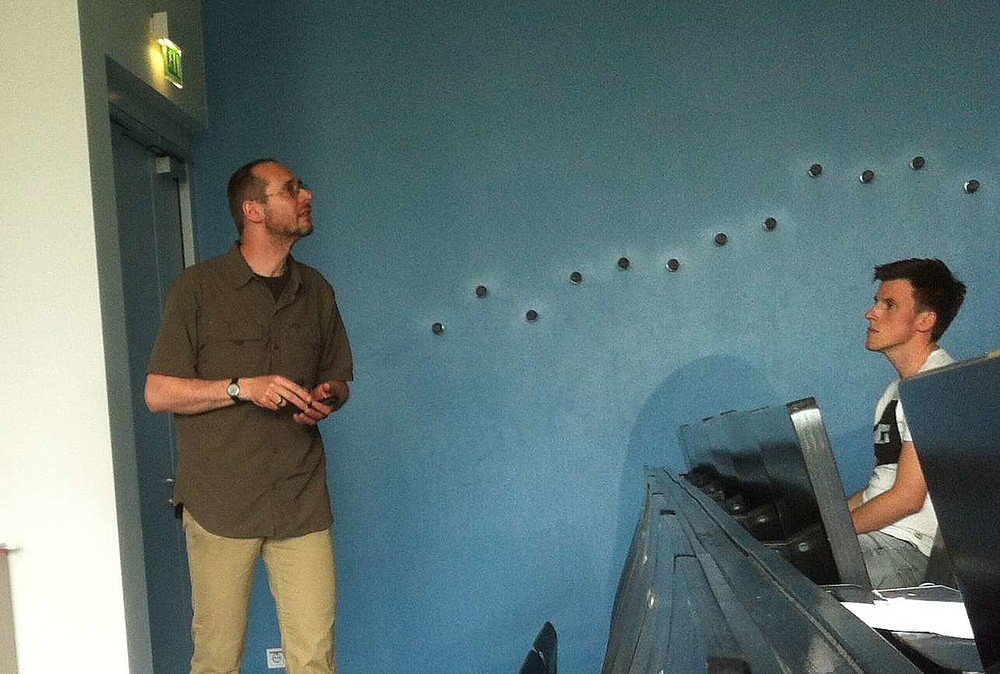On June 1, a lecture event organized by the Biotechnology and Chemistry groups of the Faculty of Natural and Environmental Sciences took place as part of the Dies Academicus. Alumni Dr. Jan Pippel (NBb05; now Helmholtz Centre for Infection Research Braunschweig) and Robert Wodtke (NCd08; now Helmholtz Centre Dresden-Rossendorf) reported on the research results of their doctoral theses on the structure and functional interactions of proteins and drug molecules. Both works were carried out in the context of the rational design of novel pharmaceuticals and provided an impressive example of interdisciplinary cooperation between biotechnologists and chemists. The three-dimensional structural elucidation of proteins provides the basis for the targeted organic-chemical synthesis of active ingredient molecules.
The new holder of the Chair of General Microbiology at TU Dresden, Prof. Dr. Thorsten Mascher, gave a very interesting overview of the field of synthetic biology. In synthetic biology, scientists try to design biological processes in a modular system and assemble them in the laboratory. With the help of quasi individual Lego bricks, complex biological processes and structures are recreated in order to reprogram or completely redesign cells. In this way, American bioengineers from the laboratories of J. Craig Venter have already been able to create an artificial bacterial cell with a minimum of 531 genes. Not only the rapidly developing technical possibilities were discussed, but also the ethical aspects of such work.
Finally, Martin Lipsdorf, the owner of Laktasekampagne from Leipzig, gave a keynote speech in which he presented his experiences of founding a company and being an independent small businessman in the processing and distribution of a biotechnological product.
The event, which was very well attended by students, staff and guests, ended with bratwurst and beer at Haus VI.
Contact person:
Prof. Dr. Thomas Wiegert

